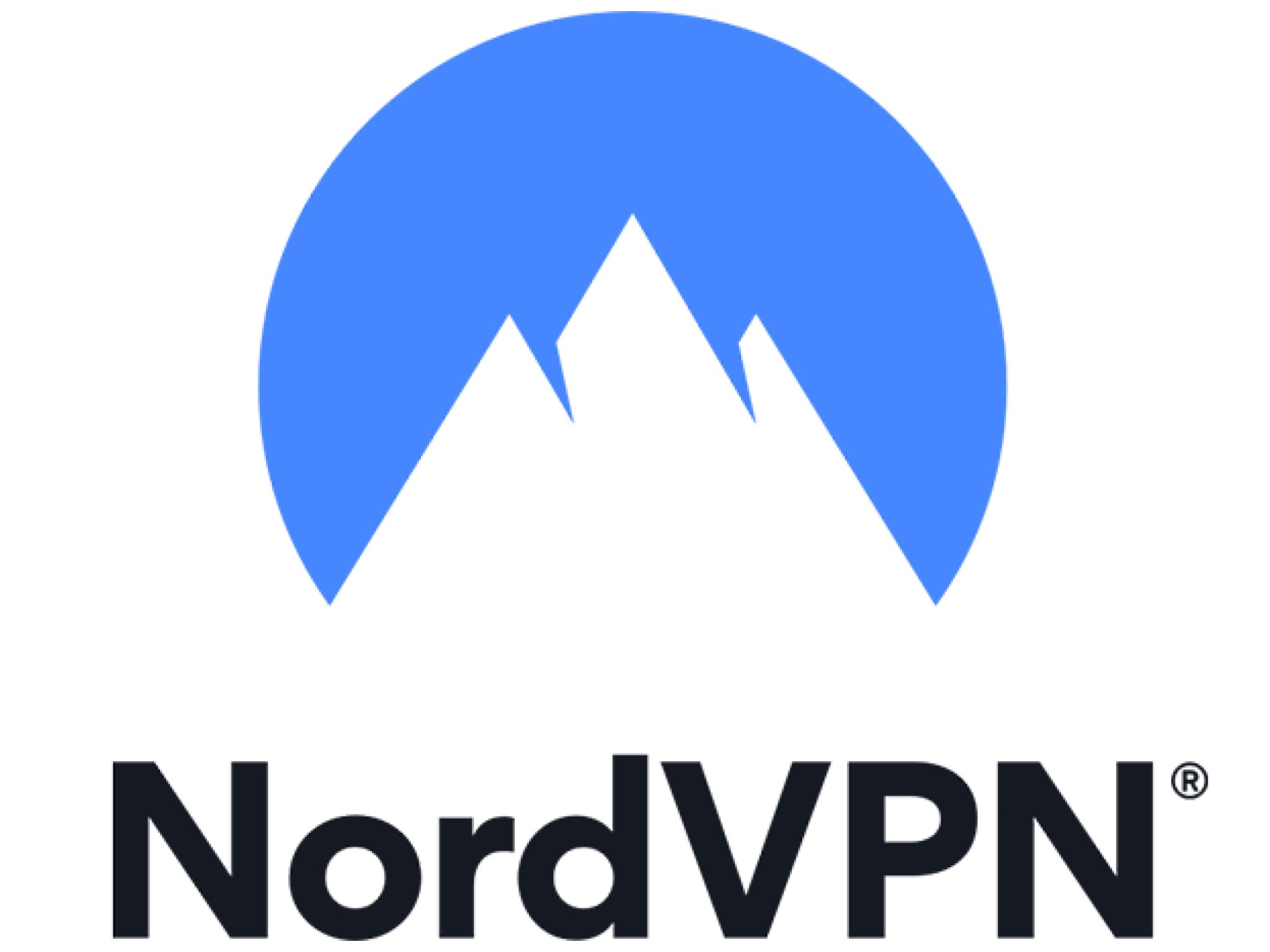These are the best mesh Wi-Fi routers you can buy - Android
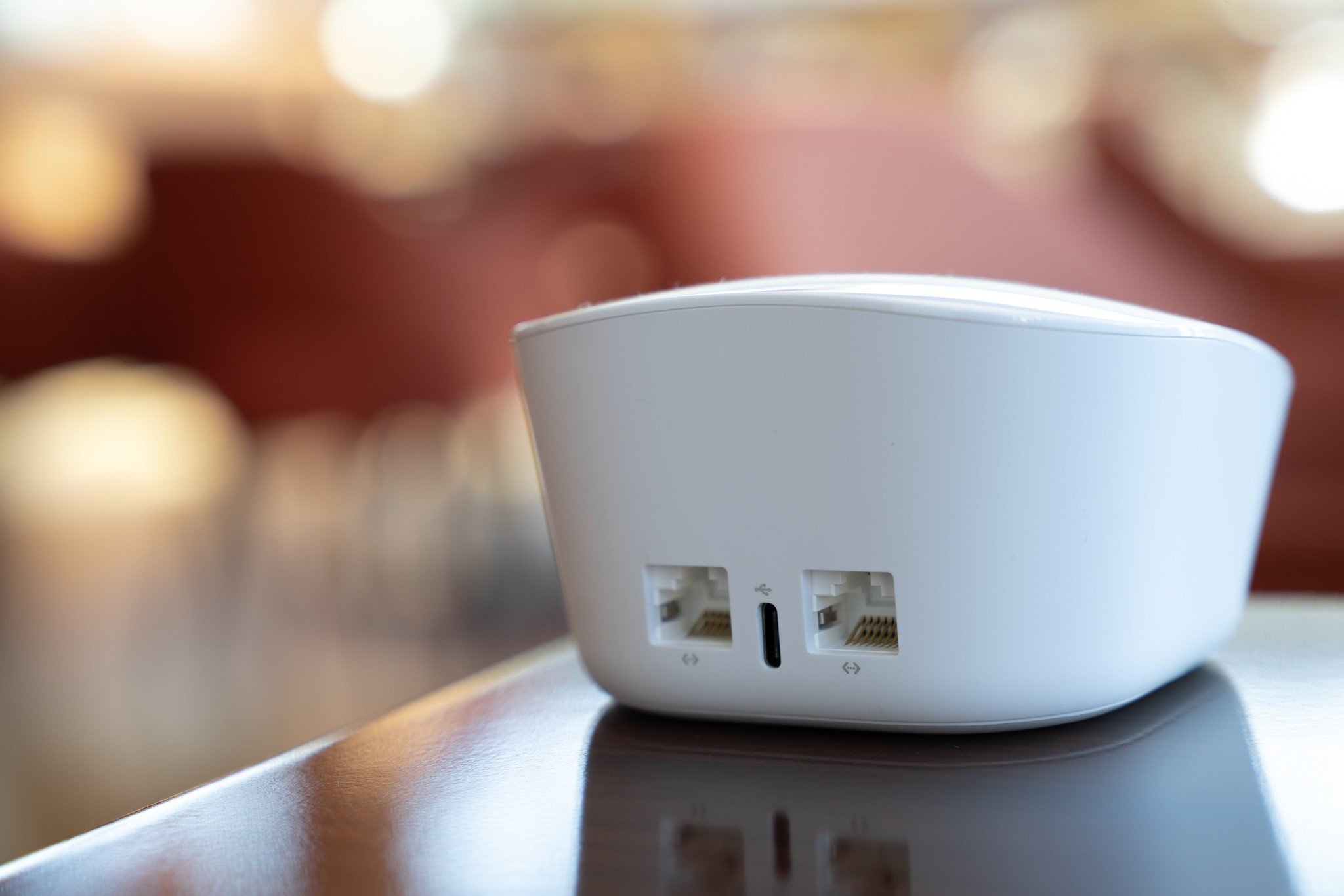
The best mesh Wi-Fi systems are the networking versions of working smarter, not harder. Compared to a traditional router, mesh systems use several smaller Wi-Fi routers placed around your home to cover you from multiple angles and dodge things like thick walls that can kill your signal. Whether you want top speed and customizability or simplicity and consistency, there's a mesh system that will work in any home. Our top pick goes to Eero, which hits all of the sweet spots of a Wi-Fi system in a small, understated housing that loses obtrusive articulating antennas. Still, there are plenty of other trusted systems we rank as some of the best mesh Wi-Fi routers on the market today and we've included them all on this list.
Best Overall Mesh Router: Eero
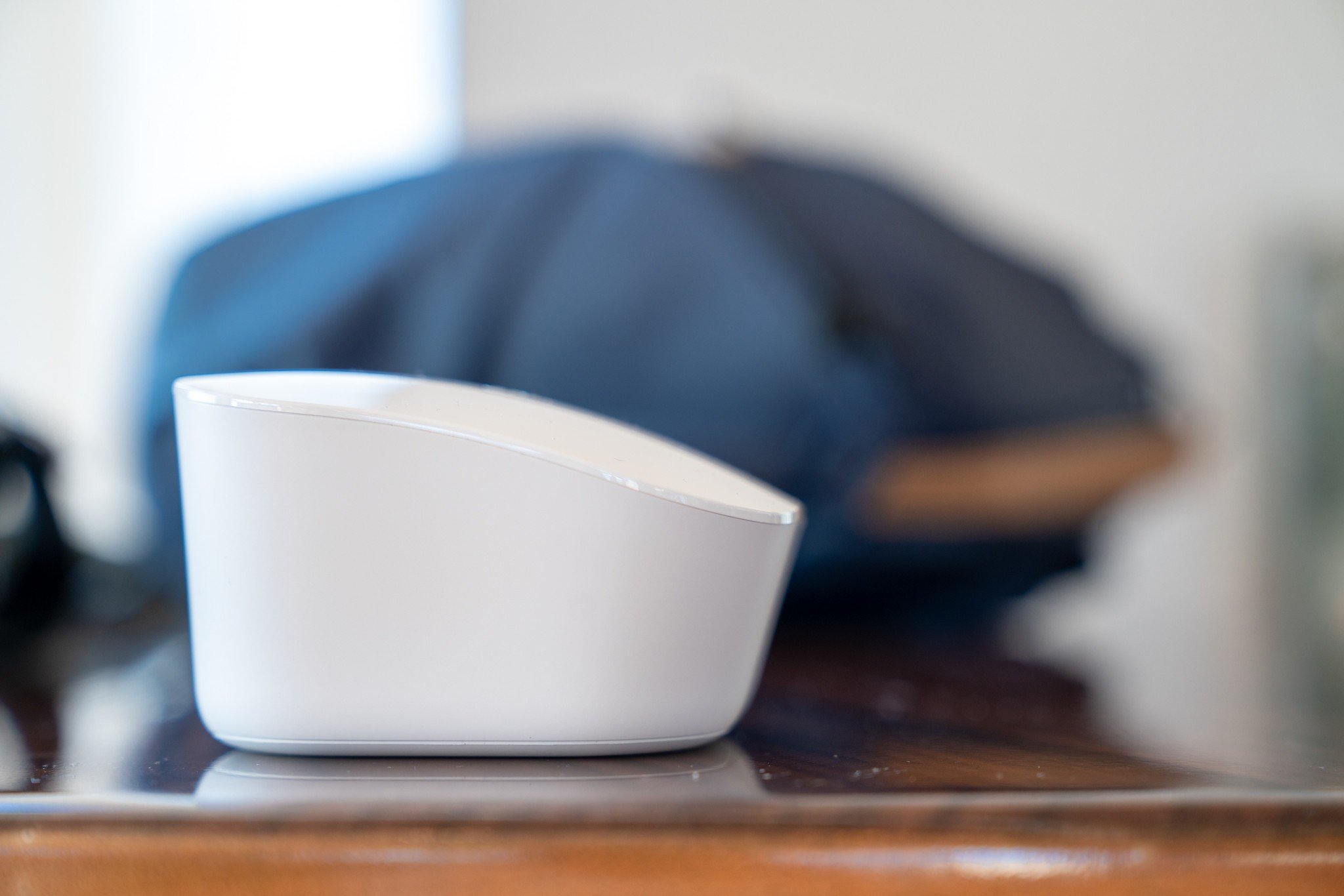
Eero made one of the first consumer mesh Wi-Fi systems, and the company keeps making them better with each revision. The current third generation Eero has the best blend of advanced networking features of any system available thanks to the small size and compatibility with previous Eeros. It's also compatible with the Wi-Fi 6 Eero systems if you think you might upgrade to Wi-Fi 6 in the future.
Eero isn't trying to be the fastest router. Its main goal is to offer a solid and reliable connection. The speeds will be fast enough for all browsing and streaming to most people, including 4K content. There are also two Ethernet ports on each unit if you need them.
If you need a bit more speed, you can go and step up and start with the faster Eero Pro or Eero 6. The best part is that all Eeros are compatible, so you can focus on speed where you need it and keep things compact where you don't need as much.
Pros:
- Eero works with all other Eero models
- Small and easy to place
- Two Ethernet on each unit
- Great Android and iOS app
Cons:
- Limited "power-user" settings
- Not as fast as the competition
Best Overall
Eero (3-pack)
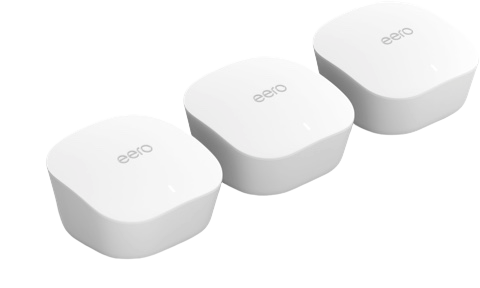
- $199 at Amazon
- $199 at Best Buy
- $199 at B&H
Small and powerful
Eero creates a great Wi-Fi experience with a simple and stylish appearance and flexible expansion.
Best Value Mesh: TP-Link Deco M5

If you want to set up a mesh network that covers the whole house (up to 5,500 square feet) and don't want to break the bank, grab a TP-Link Deco three-pack. You'll get whole-house coverage without ever-changing networks or hopping onto an extender, plus features like prioritizing and parental control. TP-Link also uses adaptive routing to make sure the whole network is as fast as it can be.
From a hardware perspective, you get plenty of speed on Wi-Fi with AC Wi-Fi delivering 400Mbps at 2.4Ghz and 867Mbps at 5Ghz. Two ethernet ports on each help you keep all of your devices connected, even the older ones. Not to mention, it's a smaller size than some, which makes this an easy router to hide in any room's decor.
Pros:
- Inexpensive
- TP-Link HomeCare includes security and parental controls
- Native Alexa support
- Solid AC1300 Wi-Fi (867Mbps + 400Mbps)
Cons:
- Limited "power-user" settings
Best Value
TP-Link Deco M5 (3-pack)
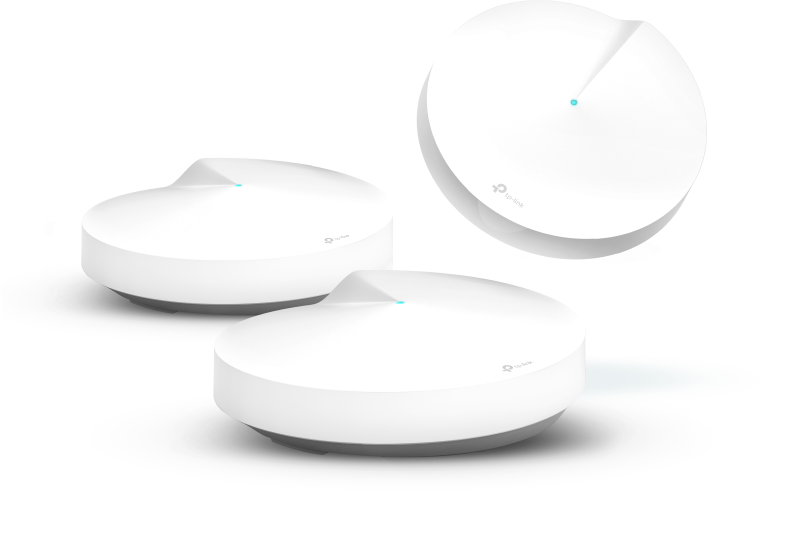
- $153 at Amazon
- $180 at Dell
- $150 at B&H
Fast Wi-Fi on the cheap
The TP-Link's Deco M5 mesh offers the most important features in a mesh system for less. It looks good and has great coverage.
Great Software: Nest Wi-Fi router and point
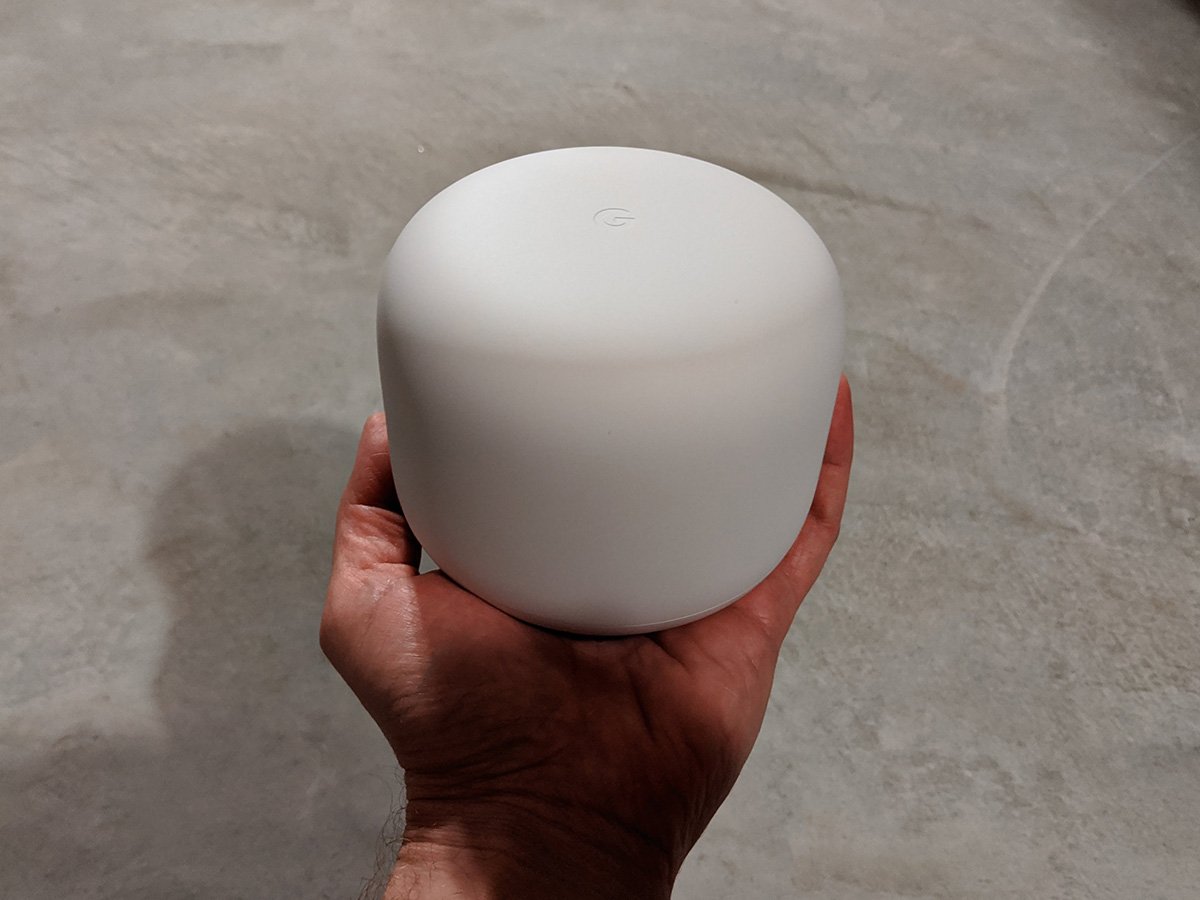
Nest Wi-Fi starts where Google Wi-Fi left off with a subtle circular design that takes the internal specifications to the next level. The speed gets an upgrade to dual-band AC2200 speeds in the 802.11s standard created for mesh networks with 3,800 square feet of coverage from a router and point. This helps a remote Nest Wi-Fi router or point connect to the strongest possible path, whether direct to the base router or through another mesh point.
WPA 3 support is included with backward compatibility for older devices. Nest Wi-Fi is managed with the Google Home app, which also manages any of your other Nest devices. Each Nest Wi-Fi point also comes with a built-in smart speaker with Google Assistant. It's a great bonus for someone deeply invested in Google's ecosystem.
You can expand your Nest Wi-Fi system with additional Nest Wi-Fi routers, which is the fastest option with the greatest coverage. You can also connect Nest Wi-Fi points or Google Wi-Fi points in areas that don't need as much speed. The Nest Wi-Fi points are significantly slower with an AC1200 connection and don't offer quite as much coverage at 1,600 square feet. If you want wired Ethernet ports on your node, you will need to use a Nest Wi-Fi router or Google Wi-Fi as the Nest Wi-Fi point does not have any Ethernet ports.
Pros:
- Each router has two Ethernet ports
- Expands with other Nest Wi-Fi router or points plus Google Wi-Fi
- Excellent Google Assistant integration
- Fast security updates
- Up to date security with WPA3
Cons:
- Google collects analytical data
- Most settings require an active internet connection
- Nest Wi-Fi points lack Ethernet
Great Software
Nest Wi-Fi Router and Point
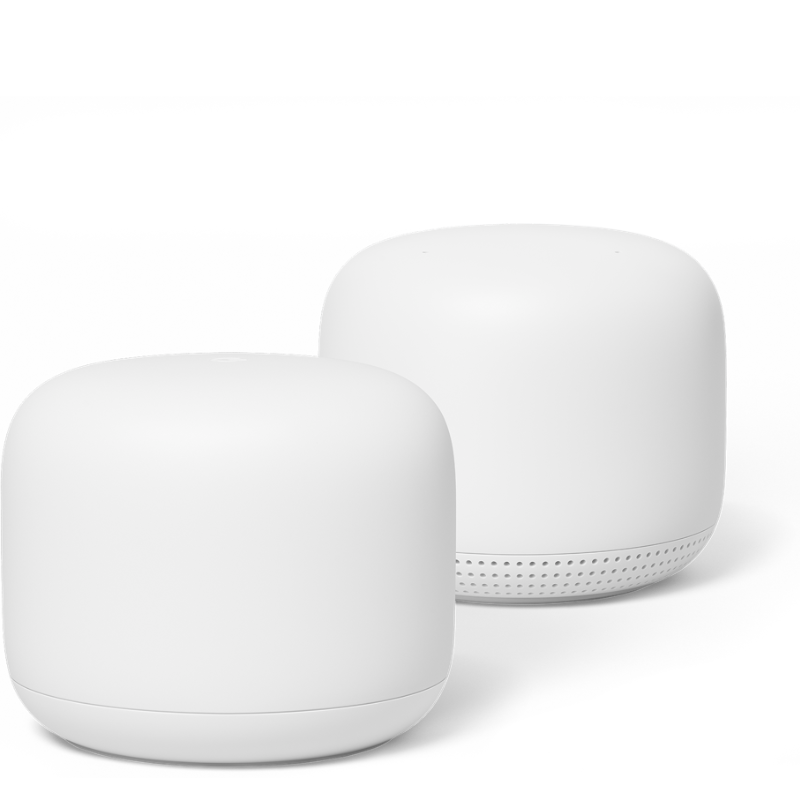
- $269 at Best Buy
- $269 at Dell
- $269 at B&H
Fast updates
Nest Wi-Fi has a subtle appearance with great performance and features like WPA3 support, frequent updates, and AC2200 Wi-Fi speed.
Most Flexible Mesh: Asus Zen Wi-Fi AC (CT8)
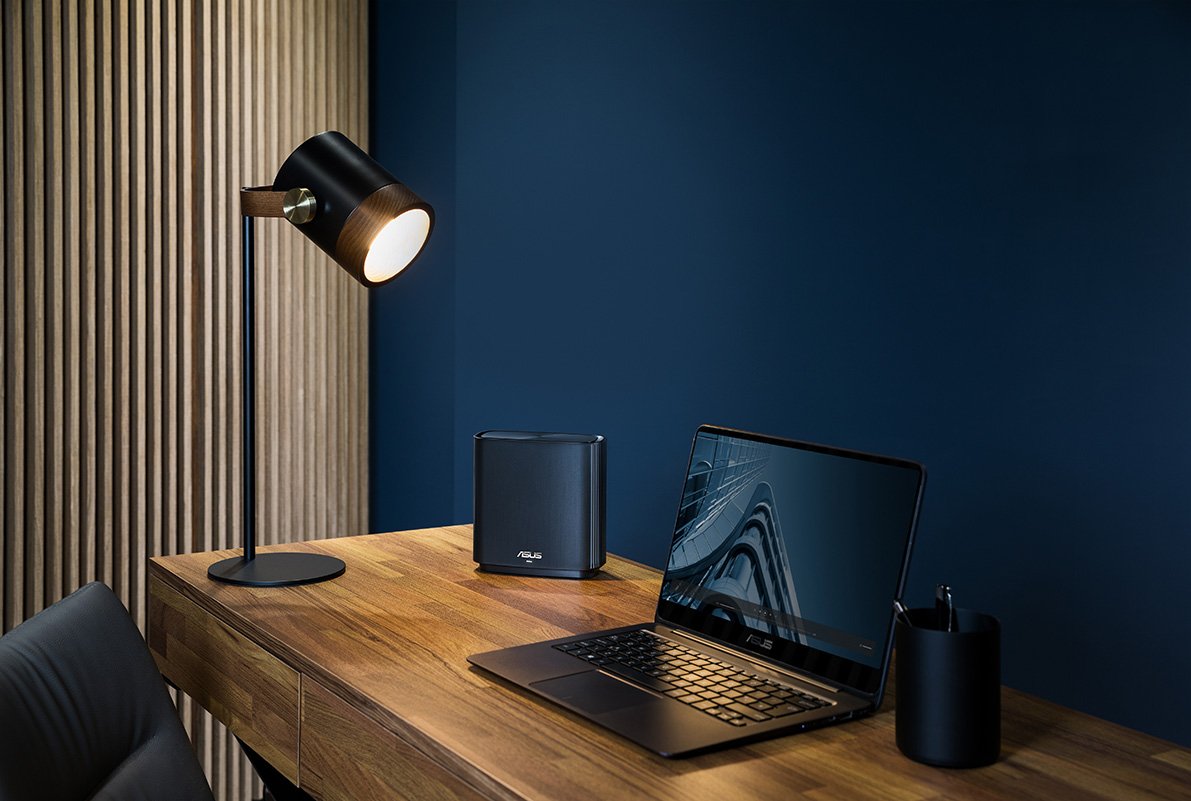
The ZenWi-Fi AC (CT8) from Asus is a balanced entry compared to the large range of AiMesh compatible routers. It has good capacity thanks to a tri-band setup, allowing 400Mbps on the 2.4GHz channel, 867Mbps on one 5GHz channel, and 1,733Mbps on the second 5GHz channel. Having a fast extra 5GHz band allows the mesh points to connect to the base router without sacrificing speed to your Wi-Fi devices.
Unlike many mesh systems, Asus lets you choose whether you want a single unified Wi-Fi name for all Wi-Fi bands or want to name them individually. While a single name will be best for many people and much simpler, having the option to force certain devices to use only the faster bands can be useful.
As for expansion, each ZenWi-Fi unit has three open gigabit Ethernet ports for wired devices plus one for input. Asus allows you to connect any of its AiMesh routers in software to improve coverage, including its older Lyra series of mesh routers. The Asus ZenWi-Fi AC (CT8) is a great option for someone that wants speed and flexibility with plenty of room to customize.
Pros:
- Fast AC3000 speeds
- Consistent speeds with tri-band Wi-Fi
- Customize the band names
- Up to date security with WPA 3
- Expand with any AiMesh router
Cons:
- Only three Ethernet ports each
Most Flexible
Asus ZenWi-Fi AC (CT8)

- $309 at Amazon
- $330 at Best Buy
- $300 at B&H
High-performance with AiMesh compatibility
The Zen Wi-Fi AC from Asus delivers fast Wi-Fi 5 performance with a powerful and flexible mesh solution.
Best Tri-Band Mesh: Netgear Nighthawk MK83
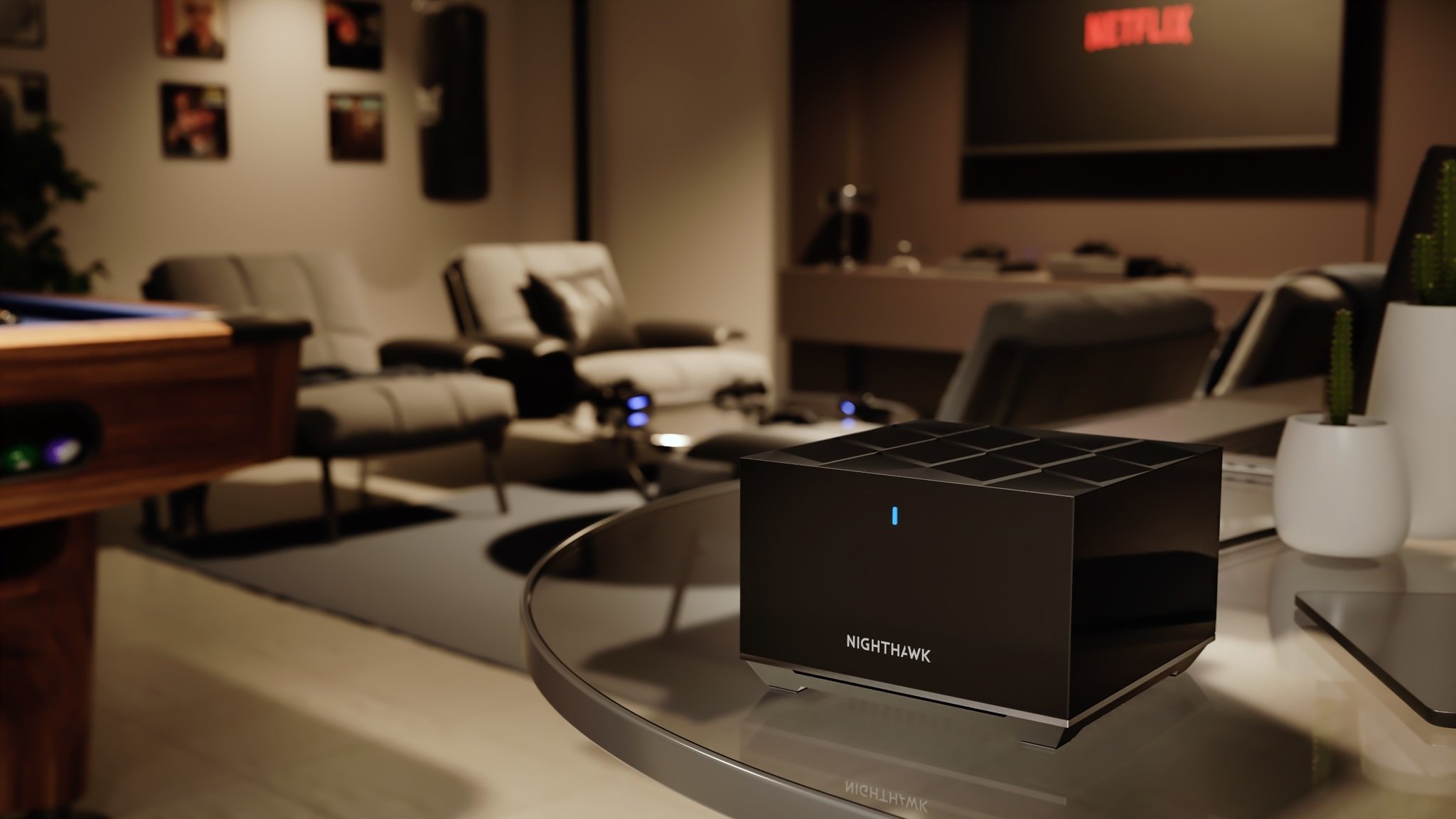
Netgear is no stranger to mesh systems and even has one of the fastest Wi-Fi 6 meshes you can get, but if you're looking for a fast and compact system, the Nighthawk MK83 is a great choice. In a sleek black housing, the MK83 system contains one MR80 router and two MS80 satellites. This enables the system's massive 6,750 square feet of coverage.
The Nighthawk MK83 delivers speeds up to 3.6Gbps. This breaks down to two 5GHz bands at 1800Mbps and 1200Mbps plus a 2.4GHz band at 600Mbps. One 5GHz band is dedicated to maintaining the mesh connection with the other band left to devices. Three open Ethernet ports on the back of the MR80 should be enough for most people, but two are available on each MS80 satellite.
Perhaps one of the biggest draws to this system is the compact black nodes measuring just 5.51 inches wide and 3.62 inches tall. This compact size will help users place them where they make the most sense. Finally, the Nighthawk app is basically just the Orbi app with dark mode, which is good. You can sign up for Netgear Armor, manage connected devices, and even test your connection speed in each room. Naturally, Netgear also allows you to manage your network in a web browser for more advanced controls.
Pros:
- Consistent speeds with tri-band Wi-Fi
- Compact nodes makes placement easy
- App setup with an optional web interface
- Plenty of Ethernet ports (3 + 2 + 2)
- Great coverage
Cons:
- Netgear Armor is expensive
- Expansion requires satellite units
Best Tri-Band
Netgear Nighthawk MK83
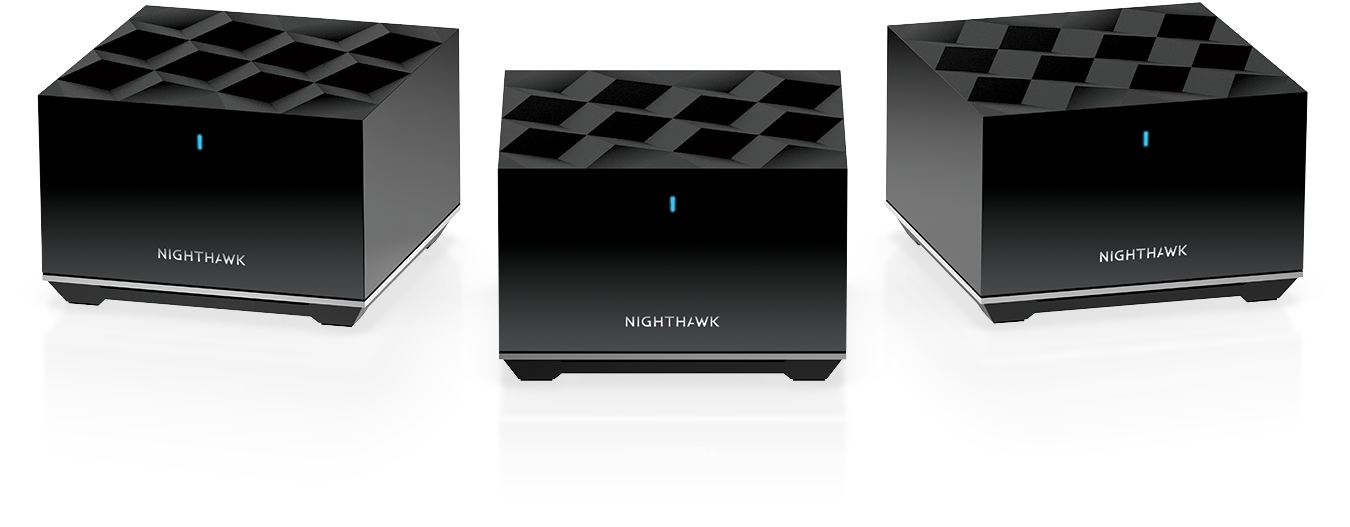
- $500 at Amazon
- $500 at Best Buy
Compact tri-band mesh
Netgear Nighthawk MK83 is a fast tri-band mesh system with plenty of Wi-Fi 6 speed and wired connectivity options for most people.
Best Entry Wi-Fi 6 Mesh: Eero 6

Eero 6 is the next logical step for the Eero platform, keeping a very similar small footprint while increasing speed and capacity with Wi-Fi 6. Compared to the standard Eero, speeds are increased from AC1300 to AX1800 thanks to Wi-Fi 6. Eero 6 is a good fit for connections up to 500Mbps. Two Ethernet ports on the main router allow you to connect a single wired device if needed. This can be a network switch if you have multiple wired devices though it does rather ruin an Eero setup's simplicity.
Mesh expansion will mainly be handled by the Eero 6 Extender featuring identical wireless capabilities to the Eero 6, but it lacks any Ethernet ports. The reduced cost compared to the router will make the Extender an excellent choice for most people. You can also buy another Eero 6 router for expansion if you need the Ethernet ports somewhere, such as a home office. All other Eeros can be used for expansion as well if you already have them.
Eero 6 also comes with the same Eero Secure options as other Eero devices customers to easily manage their network and internet security solutions from one source.
Pros:
- Wi-Fi 6 enables faster speeds on new devices
- AX1800 speeds are plenty for most people
- Compact size
- Easy setup and expansion with the Eero app
- Eeros work with all other Eeros
Cons:
- Extender doesn't have any Ethernet
- Advanced security requires a subscription
Best Entry Wi-Fi 6
Eero 6 (3-pack)
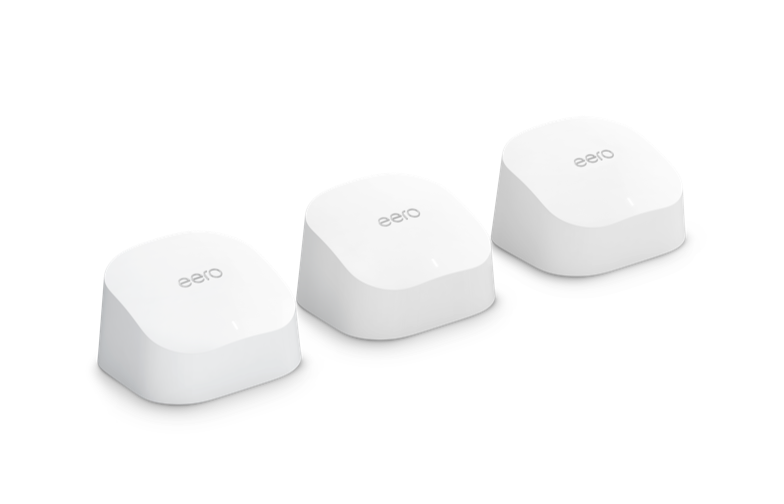
- $279 at Amazon
- $280 at Dell
- $279 at Best Buy
A simple Wi-Fi 6 upgrade
Eero 6 is a great choice for someone that doesn't need a ton of speed but wants plenty of coverage with an easy setup process.
Best Wi-Fi 6 Mesh Upgrade: AmpliFi Alien
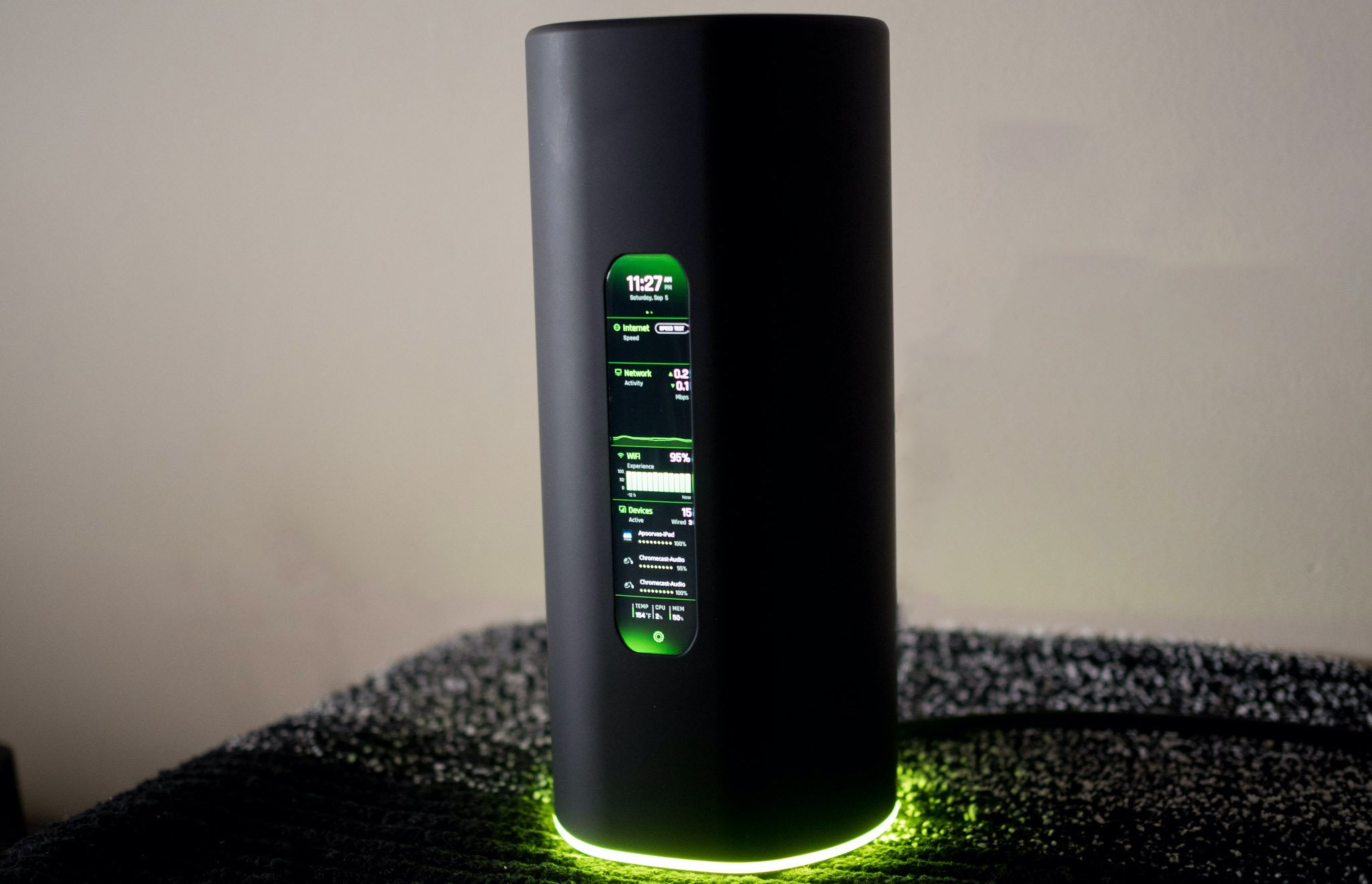
The AmpliFi Alien is a great mesh router even if it's a bit expensive. Even so, you get fast Wi-Fi 6 speeds with eight 5GHz Wi-Fi 6 streams delivering 4803Mbps and four more 2.4GHz streams for another 1148Mbps. There is also a third 5GHz Wi-Fi 5 band with 1733Mbps thanks to four streams which can make the most of the fastest Wi-Fi 5 devices. Four Ethernet ports around the back mean you're not giving up any functionality either. Keep in mind that the WAN port is limited to gigabit speeds, so there's not multi-gigabit wired support here.
The AmpliFi Alien has a great, thoughtful design that puts the permanent connections, WAN and power, on the bottom of the device, allowing for a clean Wi-Fi-only setup. Keep in mind that the Alien can only be expanded with other Alien routers or an Alien extender included in a two-pack. There aren't any cheap mesh expansion options available, but at least your mesh speeds will remain high.
This router only comes in matte black with a color display on the front, keeping you informed about your network performance. If you're the type of user that likes to keep on top of your network's performance at all times, Alien lets you stay informed without opening the app.
Pros:
- Wi-Fi 6 with 16 streams
- Tri-band with up to 7685Mbps total speed
- Four Ethernet ports for expansion
- Color display
- Great software including AmpliFi Teleport
Cons:
- No multi-gig Ethernet
- Only expandable with other Alien routers or points
Best Wi-Fi 6 Mesh Upgrade
AmpliFi Alien

- $380 at Best Buy
Great AmpliFi design and software with Wi-Fi 6 speeds
Ubiquiti brings Wi-Fi 6 to AmpliFi with the Alien featuring 16 streams for amazing speeds and a color display on the front.
Best Mesh with a Modem: Netgear Orbi CBK752
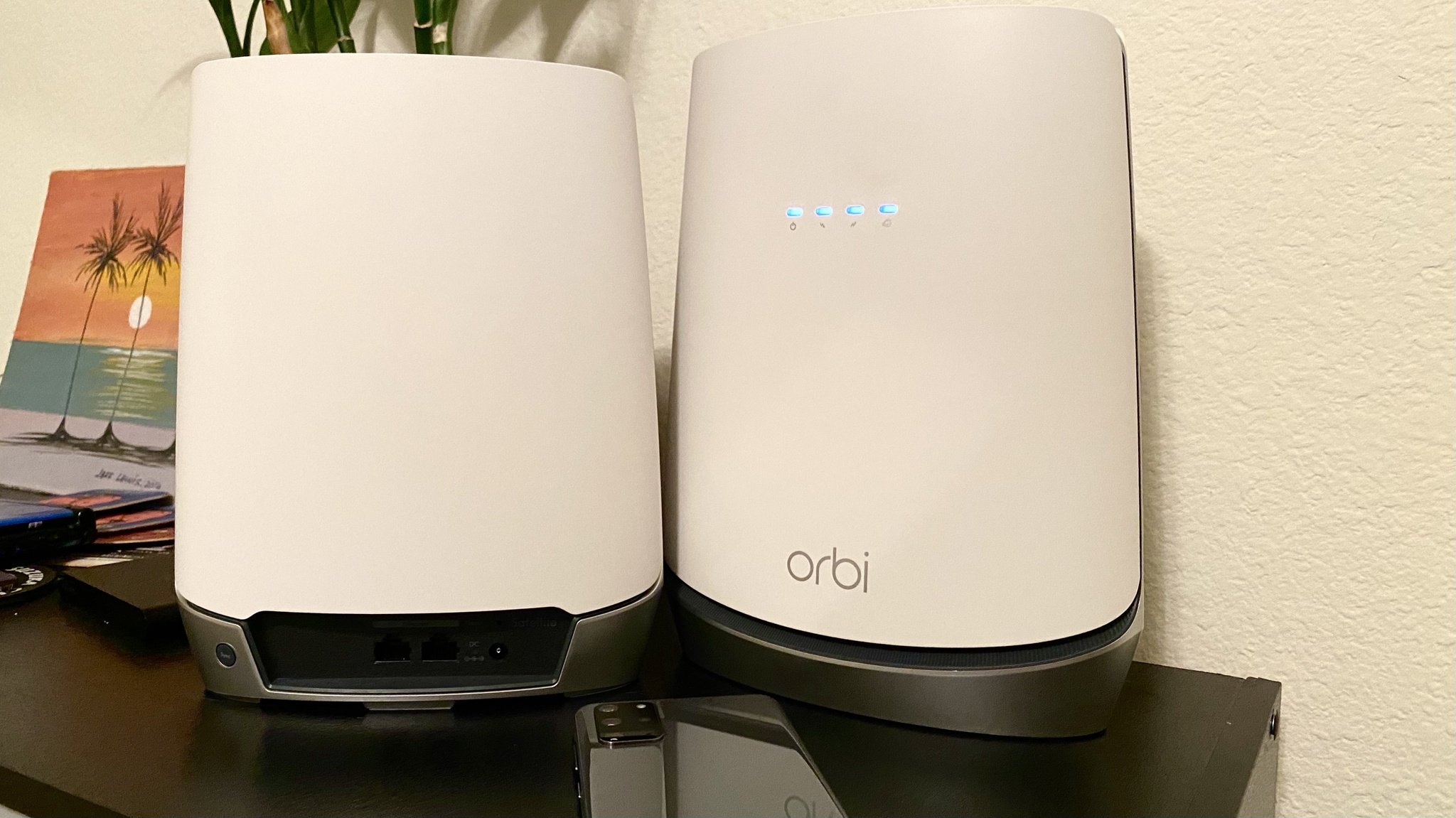
When you start planning a mesh system, it can be a bit overwhelming. In many cases, people are going from a single piece of networking gear to three or four. If you're looking for a mesh system that integrates a little more cleanly into your home, the Netgear Orbi CBK752 comes with one of the fastest cable modems you can buy today, as well as some of the fastest Wi-Fi performance you can get today. With a theoretical max of 2.5Gbps, the included DOCSIS 3.1 modem will be able to keep up with the fastest speeds any cable provided has today and in the next few years.
The included mesh hardware is nearly identical to the above RBK752 system. A tri-band AX4200 connection has a dedicated 2,400Mbps backhaul with a further 1,200Mbps and 600Mbps available for devices. The included satellite is also capable of the same speeds. You can save money by buying a slower Orbi modem, but the CBK752 strikes a great balance between speed and coverage. This is a great choice for gigabit cable internet customers.
Like all Orbi systems, network expansion is limited, with only a few standalone satellite upgrades being compatible. Don't buy a full RBK752 or RBK753 system expecting to expand with the base router. Only satellites can be used to expand an Orbi system. Still, with one or two satellites, even large homes should have great coverage.
Pros:
- A built-in modem simplifies the networks setup
- One of the fastest modems you can buy
- Fast tri-band Wi-Fi 6 speeds
- 4 Ethernet on the router plus 2 on the satellite
- Compatible with RBS750 and RBS850 satellites
Cons:
- Very large for its power and speed
- Can only be expanded with specific satellites
Best with a Modem
Netgear Orbi CBK752
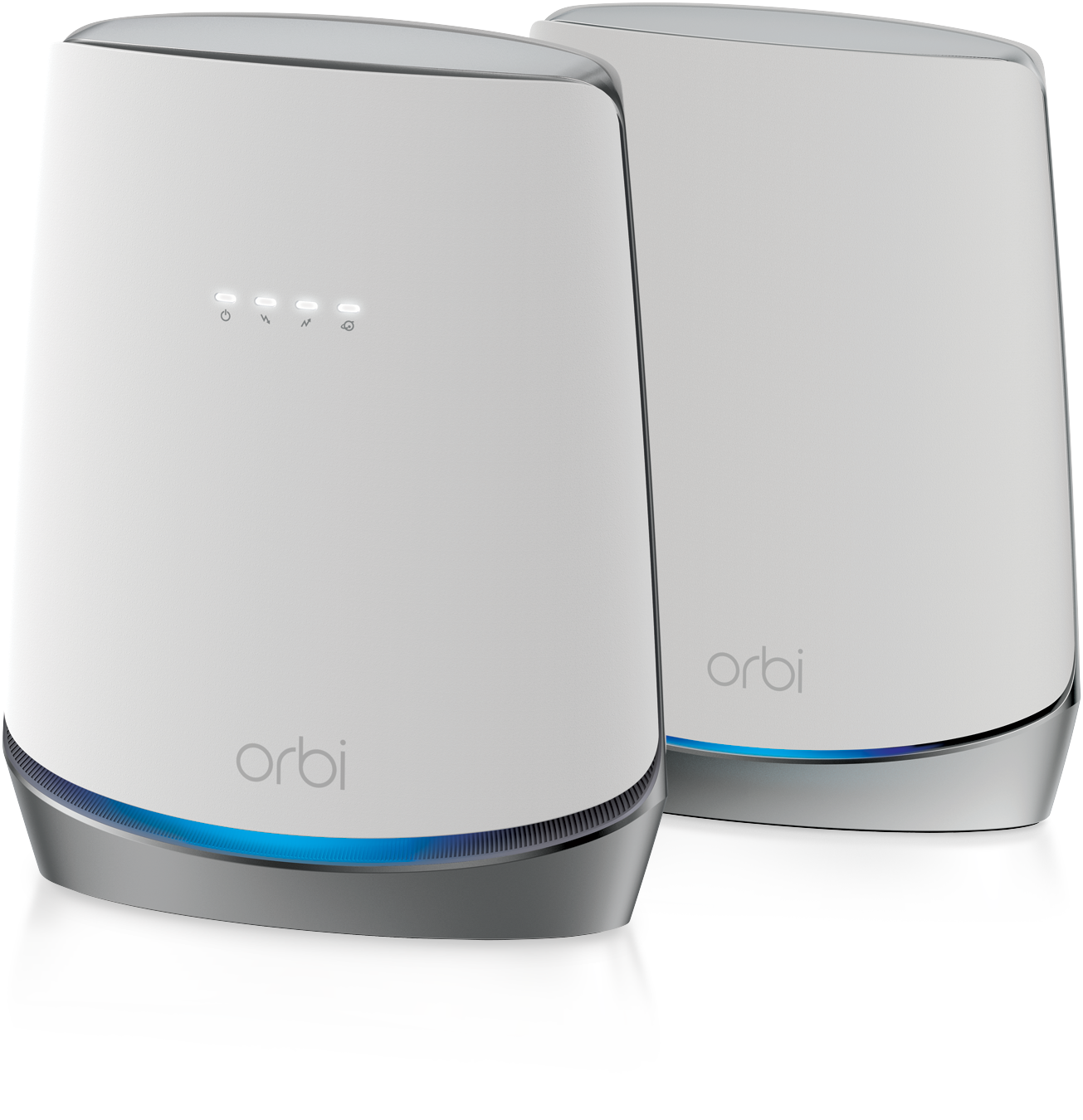
- $504 at Amazon
- $600 at Dell
- $504 at Walmart
A complete package for cable internet users
The Orbi CBK752 combines the power of RBK752's system with a faster DOCSIS 3.1 modem that supports gigabit cable internet speeds.
Bottom line
Mesh wireless systems need to do two things right: be reliable and provide coverage everywhere you need it. It's also worth considering if you even need a mesh system since many of the best wireless routers will be a big enough upgrade without any mesh support. If you do need the extra coverage, there's a mesh system for just about any set of needs, and all the kits on our list do a great job at both. Sometimes, though, it's the tiny details that decide which product is best for you. And if you need additional speed, our roundup of the best Wi-Fi 6 mesh routers should be your next read.
Overall, Eero manages to offer the best total package. It has enough speed for most average users while keeping its physical footprint small enough to blend in with the decor in any room. It's also nice that you can upgrade your Eero mesh down the line with faster route
03/04/2021 05:00 PM
The best phones available at AT+T
03/04/2021 12:00 AM
How to use Android Smart Lock
03/04/2021 12:00 PM
NordVPN may be one of the best VPN services for you to use, here's why
03/04/2021 07:00 AM
Should you buy the OnePlus 9 or the Samsung Galaxy S21
03/04/2021 02:30 PM
A Pixel 6 with a Google chip is a bold move that we all want to see
03/04/2021 11:00 AM
How to watch Herring vs Frampton - Live stream super-featherweight boxing on
03/04/2021 10:00 AM
Our 5 free and paid Android/iOS apps of the week (2)
03/04/2021 01:00 PM
Personal data for 533 million Facebook users leaks on the web
03/04/2021 08:01 PM
- Comics
- HEALTH
- Libraries & Demo
- Sports Games
- Racing
- Cards & Casino
- Media & Video
- Photography
- Transportation
- Arcade & Action
- Brain & Puzzle
- Social
- Communication
- Casual
- Personalization
- Tools
- Medical
- Weather
- Shopping
- Health & Fitness
- Productivity
- Books & Reference
- Finance
- Entertainment
- Business
- Sports
- Music & Audio
- News & Magazines
- Education
- Lifestyle
- Travel & Local
2014 © US apps and news

